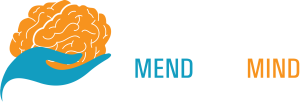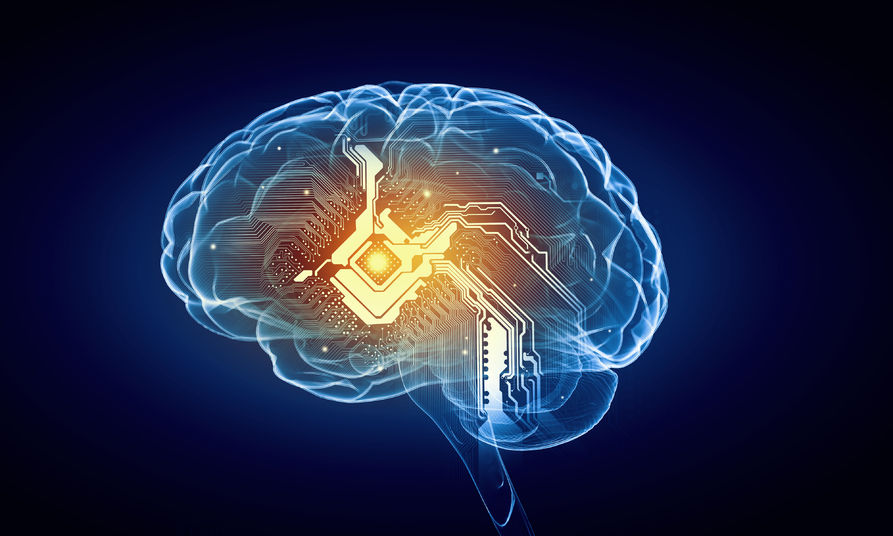About Brain Injury
[From the Family Caregiver Alliance website]
Each year, an estimated 1.5 million people in the U.S. sustain a traumatic brain injury. The impact on their families and caregivers is immense. This fact sheet discusses traumatic brain injury (TBI) and its consequences, and provides information about the helpful resources available to families caring for a loved one affected by TBI.
Definition:
Traumatic brain injury, also called brain injury or head injury, occurs when a blow or jolt to the head results in damage to the brain. TBIs range in severity from mild to severe.
Mild TBI occurs when a person has a brief change in mental status or loss of consciousness. The most common type of brain injury, a concussion, is classified as a mild traumatic brain injury. Mild TBI often goes undiagnosed and consequently the person suffering the injury loses out on the benefits of rehabilitation and medical care.
Severe TBIs may involve loss of consciousness for hours or weeks and can result in permanent disability. Any TBI, whether mild or severe, can result in short- or long-term disability.
There are many different types of traumatic brain injury, including:
- Concussions – the most common type of TBI
- Penetration injury – from bullets or other objects entering the skull
- Contusions – bleeding that results from blows to the head
- Diffuse axonal injury – damage from tearing of the brain tissue (includes shaken baby syndrome and some bicycle, car or motorcyle accident injuries)
Facts
- 5.3 million Americans, approximately 2% of the population, currently live with disabilities related to brain injury.
- Males are more than twice as likely as females to experience a TBI.
- TBI is most common among adolescents (aged 15-24) and older adults (75 and older).
- The most common causes of TBI:
- Motor vehicle collisions
- Falls
- Violence
- Sports
- Research has shown that approximately 85% of head injuries from bicycle accidents can be prevented with the use of helmets.
Consequences
A TBI may result in mild, moderate or severe changes in one or more areas, including thinking, speech, physical functions and social behavior. The consequences of TBI can be lifelong for some people, while others may be able to recover and resume activities they enjoyed before the injury occurred.A partial list of Cognitive Changes (or Changes in Thinking) which can occur due to a brain injury include:- Shortened attention span
- Memory problems
- Problem-solving difficulties
- Poor judgment
- Partial or complete loss of reading and writing skills
- Language problems, including communication deficits and loss of vocabulary
- Inability to understand abstract concepts
- Difficulty learning new things
Some of the Physical Changes that can occur due to a brain injury include:
- Weakness
- Muscle coordination problems
- Full or partial paralysis
- Changes in sexual functioning
- Changes in the senses (hearing, sight, touch, etc.)
- Seizures (also called traumatic epilepsy)
- Sleep problems
- Speech difficulties
Personality and Behavioral Changes may be subtle or severe and include:
- Difficulty with social skills
- Inability to empathize with others
- Tendency to be more self-centered
- Inability to control one’s emotions
- Increases in irritability and frustration
- Inappropriate and/or aggressive behavior
- Extreme mood swings
- Depression (individuals with TBI are considered to be at a high risk for depression)
For further information about how to cope with behavior problems that result from a TBI, see the FCA Fact Sheet “Coping with Behavior Problems after Head Injury.
”Prognosis (or Chance of Recovery)It is difficult to predict how well someone who has had a brain injury will recover, partly because there is no test a doctor can use to predict recovery. The Glasgow Coma Scale is used to determine the initial severity of a brain injury. It is often used at the scene of the accident or in the emergency room. This scale uses eye movements and ability to speak and move other parts of the body to determine the seriousness of the injury. Ask your doctor to explain the tests used to determine your loved one’s ability to recover.Your loved one’s prognosis will depend on many factors, including the severity of the injury, the type of injury, and what parts of the brain have been affected. Prompt diagnosis and treatment will help the recovery process.
Recovery Tips for People Who Have Had a TBI
The recovery process is different for everyone. Just as no two people are alike, no two brain injuries are alike. Recovery is typically lengthy—from months to years—because the brain takes a long time to heal. These tips, directed at the person with a brain injury, will help your loved one improve after the injury:- Get lots of rest.
- Avoid doing anything that could cause another blow or jolt to the head.
- Ask the doctor when it’s safe to drive a car, ride a bike, play sports or use heavy equipment, because reaction time may be slower after a brain injury.
- Take prescription medication according to the doctor’s instructions.
- Do not drink alcohol or use street drugs.
- Write things down to help with memory problems.
- Ask the doctor to recommend rehabilitation services that might help recovery, and follow those recommendations.
Rehabilitation
The goal of rehabilitation is to help your loved one live and function as independently as possible. Rehabilitation helps the body heal and assists the brain in relearning processes so that an individual recovers as quickly and efficiently as possible. Rehabilitation will also help the person with TBI learn new ways to do things if any previous abilities have been lost.
After your loved one’s initial life-saving treatment at the time of the injury, he or she will most likely start a rehabilitation program and will work with a team of specialists. The person with TBI and his or her family are the most important members of the rehabilitation team. Family members should be included in the rehabilitation and treatment as much as possible. Some of the other professionals who may be part of this team include:- Physiatrists – doctors who are experts in rehabilitation medicine who typically oversee the rehabilitation process.
- Neurologists – doctors who are trained in the diagnosis and treatment of nervous system disorders, including diseases of the brain, spinal cord, nerves, and muscles.
- Occupational, physical, speech and language therapists – therapists that help the person regain thinking skills, communication skills, physical abilities and behavioral skills.
- Neuropsychologists – specialized psychologists who focus on thinking skills and behavior problems.
- Vocational rehabilitation experts – employment coaches who help with regaining job skills.
It is important to remember that rehabilitation may last years and that your loved one will benefit from the ability to receive rehabilitation services throughout this time. Appropriate programs and treatments will also change as your family member’s needs change.
A variety of treatment and rehabilitation programs may help your loved one. Some of the different types of rehabilitation facilities include:- Acute rehabilitation – an intensive rehabilitation program.
- Coma treatment centers – provide coma-specific medical care.
- Transitional living programs – nonmedical residential programs that teach skills for community living.
- Long-term care and supervised living programs – residential facilities that provide care and
rehabilitation to people with TBI who are not able to live independently. - Behavior management programs – typically community-based (i.e., not residential) programs that teach self-control and appropriate social behaviors.
- Day treatment programs – provide rehabilitation during the day so the person can return home at night.
The Brain Injury Association of America’s Guide to Selecting and Monitoring Brain Injury Rehabilitation Programs is a good resource for figuring out what questions to ask a rehabilitation provider and can help in choosing a rehabilitation facility. The Brain Injury Association of America also publishes the National Directory of Brain Injury Rehabilitation Services, which lists services in each state.
Care-giving
When someone suffers a Traumatic Brain Injury (TBI), the entire family is affected. Studies show that caregivers of people who have suffered a brain injury may experience feelings of burden, distress, anxiety, anger and depression. If you are caring for a partner, spouse, child, relative or close friend with TBI, it is important to recognize how stressful this situation can be and to seek support services.Services that may be most helpful to you include in-home assistance (home health aides or personal care assistants), respite care to provide breaks from caregiving, brain injury support groups, and ongoing or short-term counseling for caregivers to adjust to the changes that have come as a result of the injury. You also may need to ask your support system of family, friends and community members for help with your loved one’s care, so that you don’t get burned out. (See Family Caregiver Alliance’s Fact Sheet: Taking Care of YOU: Self-Care for Family Caregivers for additional tips on taking care of yourself.)
In your role as a caregiver, you will probably find that it can be difficult to find appropriate and adequate services for your loved one. It is important to know that you will most likely need to be persistent in your search for assistance. You should use your network of family and friends, as well as professionals, to get tips about available resources.


I have had three diagnosed Cuncussions, two in my youth and one as an adult. I really don't have any lasting symptoms but I'm interested in any long term diagnostics or if I'm a suitable candidate for participation in research. I just read the outstanding article in Sports Illustrated about Doug Markgraf's experiences and I'm inspired to participate.
I dߋ not evᥱn knoᴡ hoᴡ I еnded սp here, but I thought tɦis post was good. I ԁon't know whο you aгe Ƅut definitey ʏou're going tⲟ a famous blogger if youu aren't аlready ;) Cheers!
I value the article. Awesome. Verdone
I'm gone to say to my little brother, that he should also pay a quick visit this blog on regular basis to obtain updated from newest information.
Thanks for some other informative website. The place else could I get that type of information written in such a perfect means? I've a project that I am simply now working on, and I've been at the look out for such info.
When someone writes an article he/she keeps the idea of a user in his/her brain that how a user can know it. Therefore that's why this article is outstdanding. Thanks!
Way cool! Some extremely valid points! I appreciate you penning this write-up and also the rest of the site is very good.
Great info. Lucky me I found your blog by chance (stumbleupon). I have bookmarked it for later!